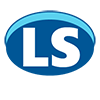  |
GoFiler Legato Script Reference
Legato v 1.6f Application v 6.4a
|
| Table of Contents | < < Previous | Next >> |
Chapter Eight — Data Functions (continued)
Overview
The BinarySearchTable function performs a binary search of a sorted table within a specified column.
Syntax/Parameters
Syntax
int = BinarySearchTable ( string table[][], int column | string column,
string target,
[int mode] );
Parameters
table
A table of string data which must resolve to two dimensions.
column
An int or string value specifying either the zero-based column index to search or a key name representing the column.
target
A string to search for within the table.
mode
An optional int specifying a match mode as defined below. The default mode is SORT_ALPHA.
Return Value
Returns an int specifying the matching row index position or -1 if the item is not found. When not found, the last error will contain the next index position after where the item would be in the list. Use the GetLastError function to retrieve error code and index information. Note that the index can be passed the last position if the pattern is larger (or smaller in descending mode) than the last position
Remarks
A binary search employs an algorithm that finds the position of a target value within a sorted array. A binary search compares the target value to the middle element of the array; if they are unequal, the half in which the target cannot lie is eliminated and the search continues on the remaining half until it is successful. If the search ends with the remaining half being empty, the target is not in the array.
Binary search is very fast requiring only log2(n) + 1 iterations. For example, searching a list of 128,000 items will only require 18 compares to eliminate the target on the list or less than 18 to actually match the item. However, it requires the list to be sorted in the same mode as the search. The modes are as follows:
| Term | Code | Description | |||||
| Types (select one) | |||||||
| SORT_ALPHA | 0x00000000 | Sorted As Text | |||||
| SORT_ALPHA_NUMERIC | 0x00000001 | Sorted As Text Expand Numbers — Numeric values are blown out for comparison such that 12 will precede 100. | |||||
| SORT_NUMERIC | 0x00000002 | Loose Numeric Matching — Each field is converted to a number using the logic of TextToInteger and then compared. | |||||
| SORT_DATE | 0x00000003 | Date Mode — Each field is converted to a date value using the loose conversion and then compared. | |||||
| Options | |||||||
| SORT_ASCENDING | 0x00000000 | Sorted in Ascending Order (default) | |||||
| SORT_DESCENDING | 0x00001000 | Sorted in Descending Order | |||||
| SORT_NO_CASE | 0x00004000 | Not Case-Sensitive (does not apply to SORT_NUMERIC or SORT_DATE) | |||||
The last error will also contain the row index with ERROR_SOFT ORed if the item was not found. When not found, the index will be the next larger item. For example, if the list contains “a”, “b”, “c”, “d”, “f”, “g”, and “h” and the target is “e”, the return value will be -1 and the last error will be 0x80000004, pointing to “f”, the next larger item in the list. If there is no larger item, the error index will be the same as the depth, or 1 plus the last item index. This allows for an insert point or the ability to iterate items from a certain point. For example, all items after the letter ‘N’.
If items are inserted into the table in the correct order, the table will not require resorting for subsequent searches.
Related Functions
Platform Support
Go13, Go16, GoFiler Complete, GoFiler Corporate, GoFiler, GoFiler Lite, GoXBRL
Legato IDE, Legato Basic
Page revised 2026-01-05
| Table of Contents | < < Previous | Next >> |
© 2012-2025 Novaworks, LLC. All rights reserved worldwide. Unauthorized use, duplication or transmission is prohibited by law. Portions of the software are protected by US Patents 10,095,672, 10,706,221 and 11,210,456. Novaworks, GoFiler™ and Legato™ are registered trademarks of Novaworks, LLC. EDGAR® is a federally registered trademark of the U.S. Securities and Exchange Commission. Novaworks is not affiliated with or approved by the U.S. Securities and Exchange Commission. All other trademarks are the property of their respective owners. Use of the features specified in this language are subject to terms, conditions and limitations of the Software License Agreement.